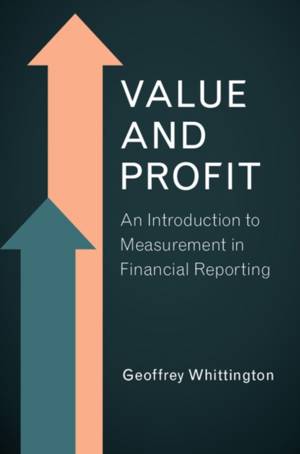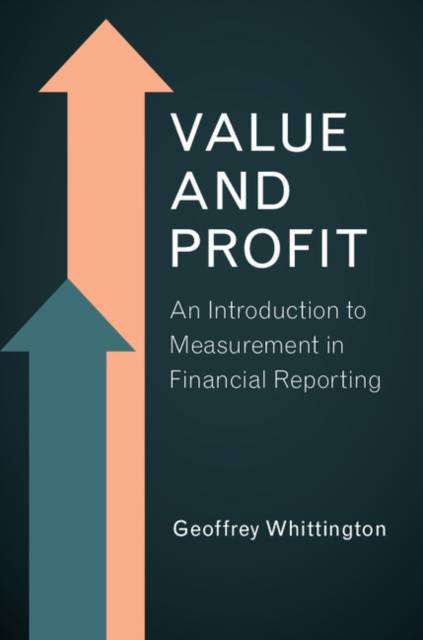
Je cadeautjes zeker op tijd in huis hebben voor de feestdagen? Kom langs in onze winkels en vind het perfecte geschenk!
- Afhalen na 1 uur in een winkel met voorraad
- Gratis thuislevering in België vanaf € 30
- Ruim aanbod met 7 miljoen producten
Je cadeautjes zeker op tijd in huis hebben voor de feestdagen? Kom langs in onze winkels en vind het perfecte geschenk!
- Afhalen na 1 uur in een winkel met voorraad
- Gratis thuislevering in België vanaf € 30
- Ruim aanbod met 7 miljoen producten
Zoeken
Value and Profit
An Introduction to Measurement in Financial Reporting
Geoffrey Whittington
Hardcover | Engels
€ 213,45
+ 426 punten
Omschrijving
The measurement methods used in financial accounting affect our perception of the value and performance of businesses by determining the amount of reported profit or loss and the resources of the business. Thus, measurement affects shareholders and other stakeholders in the business. It has even been suggested that the world financial crisis of 2007-2010 was partly due to the mis-measurement of financial instruments. In this book, Geoffrey Whittington provides a unique survey of the theory and practice of measurement in financial accounts. It seeks to define and illustrate alternative methods, using simple numerical examples, and to analyse their theoretical properties. Also, it summarises extensive empirical evidence and the historical development of ideas and practice. It is essential reading for advanced undergraduate and postgraduate students studying financial accounting, as well as practitioners and policy-makers concerned with accounting standards.
Specificaties
Betrokkenen
- Auteur(s):
- Uitgeverij:
Inhoud
- Aantal bladzijden:
- 362
- Taal:
- Engels
Eigenschappen
- Productcode (EAN):
- 9780521190978
- Verschijningsdatum:
- 3/08/2017
- Uitvoering:
- Hardcover
- Formaat:
- Genaaid
- Afmetingen:
- 155 mm x 231 mm
- Gewicht:
- 639 g

Alleen bij Standaard Boekhandel
+ 426 punten op je klantenkaart van Standaard Boekhandel
Beoordelingen
We publiceren alleen reviews die voldoen aan de voorwaarden voor reviews. Bekijk onze voorwaarden voor reviews.









